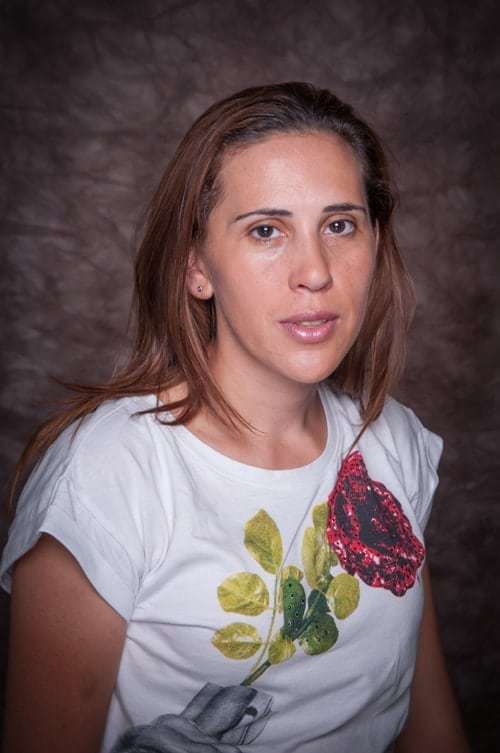Public Relations, Advertising and Marketing
(BA, 4 years)
Duration
4 years
Qualification Awarded
Bachelor of Arts in Public Relations, Advertising and Marketing
Level of Qualification
Bachelor Degree (1st Cycle)
Language of Instruction
English
Mode of Study
Full-time or Part-time
Minimum ECTs Credits
240
Request Information
Public Relations, Advertising and Marketing (BA, 4 years)
| Duration | 4 years |
| Qualification Awarded | Bachelor of Arts in Public Relations, Advertising and Marketing |
| Level of Qualification | Bachelor Degree (1st Cycle) |
| Language of Instruction | English |
| Mode of Study | Full-time and Part-time |
| Minimum ECTS Credits | 240 |
Request Information
The Bachelor of Arts in Public Relations, Advertising and Marketing (BBA) is devoted to the orientation of the students to the diverse field of Public Relations, Advertising and Marketing as a Marketing Communications discipline strategy. The Programme is one of the most diverse and veritable programmes of the Communication Department focusing on the study of how businesses operate and function in the areas of Public Relations, Advertising and Marketing, and offers very good employment prospects in the private, government and non-profit sectors. The program prepares individuals and working professionals to have rewarding careers in the complex, dynamic and diverse world of business such as public relations, advertising, and marketing, but at the same time it reflects the needs and requirements of the industry for practitioners. International guidelines were followed in the design of the program.
The aims of the programme are as follows: Offering quality university-level education that will allow students to be effective practitioners. Towards this end, students will be provided with:
- A solid foundation comprised of communication, advertising and marketing courses
- In-depth knowledge of theory
- Skills and techniques needed to practice
- Adequate preparation for an entry-level qualification
- Additional business and communication courses, allowing students to function effectively in the broader areas of corporate communication
- A strong element of general education that makes our graduates well rounded individuals in addition to well trained specialists
Students are further encouraged to develop:
- A sensitivity to the social, economic, political, ethical and technological environments within which organisations operate and compete
- Skills in systematic planning, argumentation, communication of ideas, teamwork and intercultural understanding and the application of creativity
- The final aim is to enable graduates to successfully enter the labour market or to continue studies in graduate schools.
The programme has both an academic and a market orientation. It focuses on examining and analysing the latest developments and research in the academic fields of public relations, advertising and marketing, but at the same time it reflects the needs and requirements of the industry for practitioners.
Career Prospects
Career opportunities are available both in the public sectors and the private sectors. For example, some of our graduates work as public relations practitioners at various offices within the government, such as the Public Information Office of the Cypriot government, and others are employed by private companies where they can combine interests in public relations and in other fields such as technology (PrimeTel and Cablenet) or environmental issues (Greedot Cyprus). Further, there are also companies and agencies specialising in the areas of marketing/media research and consultancy and some graduates choose to work in this sector.
Access to Further Studies
Graduates of the programme can be accepted into Second Cycle degrees (Master’s Degree)
Academic Admission
The minimum admission requirement to an undergraduate programme of study is a recognized High School Leaving Certificate (HSLC) or equivalent internationally recognized qualification(s). Students with a lower HSLC grade than 7.5/10 or 15/20 or equivalent depending on the grading system of the country issuing the HSLC are provided with extra academic guidance and monitoring during the first year of their studies.
English Language Proficiency
The list below provides the minimum English Language Requirements (ELR) for enrollment to the programme of study. Students who do not possess any of the qualifications or stipulated grades listed below and hold IELTS with 4.5 and above, are required to take UNIC’s NEPTON English Placement Test (with no charge) and will receive English Language support classes.
- TOEFL – 525 and above
- Computer-based TOEFL – 193 and above
- Internet-based TOEFL – 80 and above
- IELTS – 6 and above
- Cambridge Exams [First Certificate] – B and above
- Cambridge Exams [Proficiency Certificate – C and above
- GCSE English Language “O” Level – C and above
- Michigan Examination of Proficiency in English (CaMLA) – Pass
- Pearson PTE General – Level 3 and above
- KPG (The Greek Foreign Language Examinations for the State Certificate of Language Proficiency) – Level B2 and above
- Anglia – Level B2 and above
- IEB Advances Programme English – Pass
- Examination for the Certificate of Proficiency in English (ECPE) Michigan Language Assessment by: Cambridge Assessment English & University of Michigan – 650 average score for ALL skills and above
Course assessment usually comprises of a comprehensive final exam and continuous assessment. Continuous assessment can include amongst others, mid-terms, projects, and class participation.
Letter grades are calculated based on the weight of the final exam and the continuous assessment and the actual numerical marks obtained in these two assessment components. Based on the course grades the student’s semester grade point average (GPA) and cumulative point average (CPA) are calculated.
The student must complete 240 ECTS and all programme requirements.
A minimum cumulative grade point average (CPA) of 2.0 is required. Thus, although a ‘D-‘ is a PASS grade, in order to achieve a CPA of 2.0 an average grade of ‘C’ is required.
The objectives and learning outcomes for each module provides evidence with respect to various assessments used and their contribution to the below learning objectives). On successful completion of the Bachelor of Arts in Public Relations, Advertising and Marketing program graduates are expected to be able to:
- Outline and discuss main theoretical concepts in key areas of Public Relations, Advertising and Marketing.
- Apply the knowledge gained in the solution of marketing communication problems.
- Master the skills for students to practice in all three subject areas.
- Demonstrate an operating knowledge of Public Relations, Advertising and Marketing implementation in a business setting.
- Demonstrate familiarity with the major concepts, theoretical perspectives, empirical findings, and historical trends in Public Relations, Advertising and Marketing.
- Employ critical and creative thinking, skeptical inquiry, and applicable knowledge in practice of Public Relations, Advertising and Marketing.
- Interpret consumers’ perception of brands and consumers’ brand-related behavior to meet organizational goals.
- Appreciate the importance and role of branding from the consumer perspective as well as the process through which consumers decide which brands to choose.
- Utilize branding as an essential marketing communications tool towards achieving organizational goals within the strategic marketing context for different situations.
- Exercise marketing communications branding within different contexts relating to different industries, different product types and also different business environment conditions. They also learn to develop these in association with the other strategic marketing functions.
- Analyse, interpret and predict consumer behaviour, and correspondingly describe and prescribe it using individual and environmental factors’ profile of the individual consumer or segment.
- Interpret consumer behaviour analysis towards practical market segmentation and effective consequent targeting.
- Utilise consumer behaviour knowledge within the wider marketing communications planning process.
- Analyze the need for an enlightened Strategy including the elements of Public Relations, Advertising and Marketing.
- Understand and analyze the relevant research in advertising and marketing communication.
- Develop advertising media buying and planning strategies.
- Create and defend the strategy and execution of an ad campaign for a client(s).
- Think effectively and weigh evidence, tolerate ambiguity, act ethically in the areas of communications, and reflect on other values that are the underpinnings of Public Relations, Advertising and Marketing as a discipline.
- Assess contemporary concerns and developments existing within the field of public relations, advertising and the marketing environment and the organizational environment both in the local and international markets.
- Critically evaluate the key analytical frameworks and tools used in Public Relations, Advertising and Marketing.
- Critically evaluate the marketing communications function and the role it plays in achieving organisational success both in commercial and non-commercial settings.
- Evaluate and act upon the ethical and environmental concerns linked to marketing communications activities.
- Design effective visual communication for various marketing communications and advertising approaches that combine the use of print, online/digital, and other multimedia communication.
- Collect and apply appropriate qualitative & quantitative research in order to analyze, communicate insightfully, and to measure results within the current advertising and public relations marketplace and for campaign evaluation.
Min. ECTS Credits: 168 – Max. ECTS Credits: 168
| Course ID | Course Title | ECTS Credits |
|---|---|---|
| COMM-125 | Journalism in the Digital Era | 6 |
| COMM-135A | Introduction to Communication Studies | 6 |
| COMM-220 | Writing for Digital Media | 6 |
| COMM-241 | Communication and Media Research Methods | 6 |
| COMM-321 | Public Relations Principles | 6 |
| COMM-322 | Public Relations Methods | 6 |
| COMM-324 | Internal Communication Management | 6 |
| COMM-325 | Event Management | 6 |
| COMM-344 | Persuasion and Media Culture | 6 |
| COMM-384 | Digital Media and Youth Culture | 6 |
| COMM-395 | PR and the New Media | 6 |
| COMM-400 | Media Literacy | 6 |
| COMM-422 | PR Campaign Development and Management | 6 |
| COMM-431 | Gender and Communication | 6 |
| COMM-441 | Media and Cultural Theory | 6 |
| COMM-443 | Advertising and Creativity in the Digital Age | 2 |
| COMM-445 | Internship in PR, Advertising and Marketing (120 hours) | 6 |
| COMM-490 | Senior Year Project | 6 |
| MIS-220 | Technologies for the Social Web | 6 |
| MKTG-291 | Marketing | 6 |
| MKTG-301 | Social Media Marketing | 6 |
| MKTG-310 | Integrated Marketing Communications | 6 |
| MKTG-390 | Digital Marketing | 6 |
| MKTG-396 | Marketing Research and Data Analytics | 6 |
| MKTG-400 | Brand Management | 6 |
| MKTG-405 | Media Planning | 6 |
| MKTG-493 | Strategic Marketing | 6 |
| MKTG-496 | Consumer Behavior | 6 |
Min. ECTS Credits: 24 – Max. ECTS Credits: 36
| Course ID | Course Title | ECTS Credits |
|---|---|---|
| COMM-116 | Audio Production | 6 |
| COMM-117 | Video Production | 6 |
| COMM-230 | Voice and Diction | 6 |
| COMM-401 | Lifestyle and Fan-based Media | 6 |
| COMM-410 | Internet TV | 6 |
| COMM-440 | Communication Law and Media Ethics | 6 |
| DES-260 | Photography I | 6 |
| MKTG-256 | Web-Based Applications Development | 6 |
| MKTG-380 | Marketing of Services | 6 |
| MKTG-388 | Small Firms and B2B Marketing | 6 |
Min. ECTS Credits: 12 – Max. ECTS Credits: 30
Notes: Placement in English courses is done on the basis of a Placement Test or tests such as TOEFL or GCE.
| Course ID | Course Title | ECTS Credits |
|---|---|---|
| BADM-231 | Business Communications | 6 |
| BADM-332 | Technical Writing and Research | 6 |
| BENG-100 | College English | 6 |
| COMM-200 | Business and Professional Communication | 6 |
| ENGL-100 | Basic Writing | 6 |
| ENGL-101 | English Composition | 6 |
Min. ECTS Credits: 12 – Max. ECTS Credits: 24
| Course ID | Course Title | ECTS Credits |
|---|---|---|
| ACCT-110 | Accounting I | 6 |
| BADM-234 | Organizational Behavior | 6 |
| BADM-475 | Strategy and Business Policy | 6 |
| ECON-261 | Principles of Microeconomics | 6 |
| ECON-262 | Principles of Macroeconomics | 6 |
| MGT-281 | Introduction to Management | 6 |
| MIS-151 | Business Software Applications | 6 |
Min. ECTS Credits: 12 – Max. ECTS Credits: 36
Notes: Or any DANC, EUS, FREN, GERM, ITAL, PSY, RUS, SOC, SPAN, TURK, GREK, HIST, MUS, PHIL courses
| Course ID | Course Title | ECTS Credits |
|---|---|---|
| ANTH-105 | Cultural Anthropology | 6 |
| ART-110 | Introduction to Visual Arts | 6 |
| BADM-121 | Business Ethics | 6 |
| ESCI-200 | Society and Environment | 6 |
| EUS-103 | Modern European History and Politics | 6 |
| HIST-257 | Modern Cypriot History and Politics | 6 |
| PHIL-101 | Introduction to Philosophy | 6 |
| PHIL-120 | Ethics | 6 |
| PSY-110 | General Psychology I | 6 |
| PSY-111 | General Psychology II | 6 |
| PSY-210 | Social Psychology | 6 |
Semester 1
| Course ID | Course Title | ECTS Credits |
|---|---|---|
| COMM-125 | Journalism in the Digital Era | 6 |
| COMM-321 | Public Relations Principles | 6 |
| COMM-135A | Introduction to Communication Studies | 6 |
| COMM-116 | Audio Production | 6 |
| BENG-100 | College English | 6 |
Semester 2
| Course ID | Course Title | ECTS Credits |
|---|---|---|
| COMM-220 | Writing for Digital Media | 6 |
| COMM-230 | Voice and Diction | 6 |
| MKTG-291 | Marketing | 6 |
| MIS-220 | Technologies for the Social Web | 6 |
| COMM-200 | Business and Professional Communication | 6 |
Semester 3
| Course ID | Course Title | ECTS Credits |
|---|---|---|
| COMM-322 | Public Relations Methods | 6 |
| COMM-241 | Communication and Media Research Methods | 6 |
| MKTG-310 | Integrated Marketing Communications | 6 |
| COMM-325 | Event Management | 6 |
| PSY-110 | General Psychology I | 6 |
Semester 4
| Course ID | Course Title | ECTS Credits |
|---|---|---|
| COMM-324 | Internal Communication Management | 6 |
| COMM-344 | Persuasion and Media Culture | 6 |
| COMM-395 | PR and the New Media | 6 |
| COMM-384 | Digital Media and Youth Culture | 6 |
| COMM-117 | Video Production | 6 |
Semester 5
| Course ID | Course Title | ECTS Credits |
|---|---|---|
| MKTG-301 | Social Media Marketing | 6 |
| MKTG-396 | Marketing Research and Data Analytics | 6 |
| COMM-400 | Media Literacy | 6 |
| COMM-431 | Gender and Communication | 6 |
| COMM-401 | Lifestyle and Fan-based Media | 6 |
Semester 6
| Course ID | Course Title | ECTS Credits |
|---|---|---|
| COMM-441 | Media and Cultural Theory | 6 |
| MKTG-390 | Digital Marketing | 6 |
| COMM-422 | PR Campaign Development and Management | 6 |
| MKTG-400 | Brand Management | 6 |
| COMM-400 | Media Literacy | 6 |
Semester 7
| Course ID | Course Title | ECTS Credits |
|---|---|---|
| MKTG-405 | Media Planning | 6 |
| COMM-490 | Senior Year Project | 6 |
| COMM-443 | Advertising and Creativity in the Digital Age | 2 |
| BADM-234 | Organizational Behavior | 6 |
| MKTG-388 | Small Firms and B2B Marketing | 6 |
Semester 8
| Course ID | Course Title | ECTS Credits |
|---|---|---|
| BADM-475 | Strategy and Business Policy | 6 |
| COMM-445 | Internship in PR, Advertising and Marketing (120 hours) | 6 |
| MKTG-380 | Marketing of Services | 6 |
| MKTG-496 | Consumer Behavior | 6 |
| MKTG-493 | Strategic Marketing | 6 |













